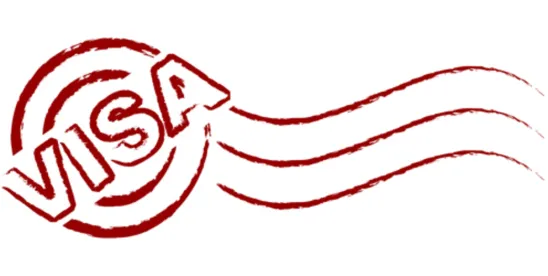Employers should expect changes to their immigration and hiring enforcement regimes under a second Trump administration. Based on campaign rhetoric and promises, those changes will include emboldened and focused immigration policies to remove millions of undocumented workers and tighten the legal immigration system. Below is a summary of expected employment-related immigration changes and practical steps U.S. employers can take to prepare for the next four years.
H-1B Workers
The H-1B visa program, which enables U.S. companies to hire foreign workers in specialty occupations, is the workhorse of the U.S. skilled worker visa program and was a major target during Trump’s first term. Many of Trump’s attempted H-1B reforms were blocked or overturned by the courts, but the following are likely to be revived in a second term.
- Tightening the definition of “specialty occupation” for H-1B visas, making it harder to obtain an H-1B for roles that do not generally require a specific degree, such as computer programmers and similar positions. Employers might need to provide additional evidence to prove that a position meets the specialty occupation criteria.
- Enforcing stricter employer-employee relationship requirements that may limit third-party placement of H-1B workers. Additionally, H-1B approvals for work at customer locations may be limited to one year, significantly affecting IT services companies and other businesses that place H-1B workers at client sites.
- Increasing Requests for Evidence (RFE) and denials. The previous Trump administration had higher H-1B RFEs and denial rates (up to 24 percent denied in 2018). RFEs and denials raise H-1B hiring costs for employers, particularly in the tech industry.
- Modifying and enforcing stricter wage requirements for H-1B visa holders, likely reintroducing a 2020 Department of Labor rule that would have raised the required wages for H1B workers. Such changes could make it financially unfeasible for many H-1B professionals to obtain visas, particularly in entry-level positions. While the intent of such changes is to protect domestic workers and avoid wage deflation, many STEM industries rely on foreign workers to correct for the domestic worker shortfall and these changes risk many of these jobs moving offshore or going unfilled.
- Modifications to the random H-1B lottery system to skew selection more towards higher-skilled, higher-paid positions. This could harm U.S. employers seeking to use H-1B workers to fill entry-level skilled positions and reduce the ability of foreign graduates from U.S. universities to qualify for entry-level H-1B roles.
These anticipated changes could have significant consequences on H-1B employers, which will face increased costs due to higher wage requirements and higher legal fees as H-1B petitions become more complex. The changes likely would lead to reduced flexibility in hiring and staffing, particularly for positions at third-party client sites and could result in loss of talent as skilled foreign workers seek opportunities in countries with more favorable immigration policies.
Employers and H-1B visa holders should consider taking the following proactive steps:
- Accelerate the filing of eligible H-1B petitions to obtain approval before new policies take effect.
- Review and adjust job descriptions and requirements to ensure they meet stricter “specialty occupation” criteria.
- Evaluate compensation to ensure compliance with any new wage requirements.
- Explore alternative visa options for employees who may no longer qualify for H-1B status under new rules.
International Students
The last Trump administration attempted to restrict employment and benefits for international students. Based on those prior policies and new proposals discussed on the campaign trail, it is likely similar initiatives will be re-introduced in 2025. Look out for policies:
- Restricting Optional Practical Training (OPT) work authorization. Presently, STEM graduates are eligible for an additional 24 months of OPT employment beyond the standard 12 months available for all graduates without requiring a different work visa. Trump will likely seek to eliminate the extra STEM OPT and prohibit OPT employment at third-party work sites.
- Tightening policies relating to “unlawful presence” for foreign students who fall out of status making it more difficult to transfer between schools and other academic programs.
- On the flip side, candidate Trump made broad statements about issuing “green cards,” upon graduation, to certain international students. The campaign did not release any specifics, and such changes would likely require legislative action, so the likelihood of implementation remains uncertain.
Worksite Enforcement and Employer Compliance
Without a doubt, the next administration will prioritize removal and deportation initiatives to implement immigration enforcement, but a key component will include Form I-9 audits and worksite enforcement of employers. U.S. employers likely will be impacted by an increase in enforcement activities and policy changes by the following:
- I-9 and E-Verify Audits by Federal and State Agencies. Although Form I-9 audits continued during the Biden administration, the vast majority were “paperwork audits” that did not include work-place raids where DHS agents used their subpoena power to enter the workplace to interview employees and execute administrative or criminal arrests. The next administration likely will return to implementing workplace raids in conjunction with an uptick in paperwork I-9 audits. Those employers utilizing E-Verify also should prepare for increased compliance auditing by the USCIS and various state agencies enforcing state laws mandating E-Verify use.
- USCIS Fraud Detection and National Security (FDNS) site inspections. The FDNS is charged with detecting and deterring immigration-related fraud and vetting the integrity of employer-filed immigration petitions. FDNS site inspections, conducted during and after the adjudication of petitions, involve unannounced visits by investigators at employer locations, including third-party and home-office worksites.
- Department of Labor (DOL), Wage and Hour Division (WHD) audits. The WHD is delegated with certain enforcement responsibilities by the Department of Homeland Security to enforce employer compliance with wage and working condition requirements under the H-1B (specialty occupation), H-2A (temporary agricultural workers) and H-2B (temporary workers) programs.
- Department of Justice, Immigrant and Employee Rights Section’s (DOJ/IER) investigations. The DOJ/IER will likely continue investigating and charging employers for discriminatory practices negatively impacting U.S. workers. DOJ/IER is also expected to continue scrutinizing employer recruitment and hiring practices, specifically focusing on select employers conducting recruitment for positions falling under the DOL’s permanent labor certification program (PERM) to sponsor workers for green cards.
- Employers can take the following actions to prepare for increased worksite enforcement:
- Engage counsel and conduct internal audits of Forms I-9, E-Verify and related anti-discriminatory compliance practices.
- Employers utilizing electronic I-9 systems should review the system requirements to ensure full compliance with applicable DHS regulations, especially regarding audit trail and indexing requirements. If these systems are maintained on vendor platforms, storing the employer’s electronic I-9 data, then employers should seek assurances from their vendors that the systems are compliant, and the vendors have procedures in place to take immediate action to respond to DHS audits.
- Employers sponsoring foreign national employees on nonimmigrant visas (H-1B, H-2A, H-2B, etc.) and those utilizing the PERM process for green card sponsorship should review their practices to ensure compliance with the applicable rules, including the maintenance of applicable public access and audit files.
- Develop policies and conduct training of HR, IT and other personnel to comply with the above.
Agency Processing and Odds and Ends
In addition to the expected legal and regulatory changes to our immigration system, there will be myriad operational and functional changes across the executive agencies that deal with U.S. corporate immigration. In some cases, this will involve executive orders and in others de facto internal changes that do not require the lengthy rulemaking process or new laws but were effective in the first Trump administration to slow and sometimes paralyze the issuance of many visas and green cards.
Such changes likely will include, but not be limited to:
- Rejecting the long-standing deference policy by which visa renewals with the same employer and in the same role were not deeply scrutinized.
- Reintroducing the Buy American/Hire American (BAHA) executive order that called upon all immigration officers to personally determine whether approval of any temporary visa or green card petition or application would harm U.S. workers.
- Higher scrutiny and slower processing times for all visa and green card categories, with particular focus on L and O visas petitions, which were subjected to more strict review under the first Trump administration. This will likely lead to increased RFEs and denials across all visa categories.
- The return of time-consuming in-person interviews for employment-based green card applications filed within the U.S.
- Requiring biometric appointments for dependent family members seeking an extension or change of status through Form I-539s and the end of I-539 adjudications along with the principal visa holder’s petition.
- Reallocating and reducing State Department resources, coupled with a return to “extreme vetting” and “travel bans,” will lead to longer processing times for visa issuances outside the U.S. and travel limitations for citizens of certain countries.
Conclusion
Once the next Trump administration takes office, we expect it will immediately begin the implementation of extensive reforms to the employment-based immigration system. Both employers and employees should stay informed and ready for these potential changes. Squire Patton Boggs will continue monitoring legal developments that may affect our clients. For any questions about the possible policies the second Trump administration might implement, please reach out to our immigration team.






 />i
/>i
